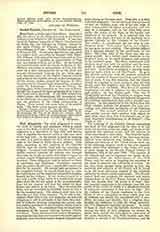

Cius (Kios), a titular see of Asia Minor. Kios was a Milesian colony on the Bithynian coast in the Kianos Kolpos, a bay formed by the Propontis. It was captured by Hymeos, a general of Darius, was destroyed by Philip III, and restored by Prusias, whence its new name Prusias ad Hippum. Its episcopal see was suffragan to Prusa. Bishop Cyrillus was present at Nicaea in 325. At an early date the see was raised to a higher rank; according to Ramsay (Asia Minor, 428) Julianus, who played an important part at Constantinople and Chalcedon as apocrisiarius of Pope Leo, was Bishop of Kios, not of Kos. At the Council of Constantinople, under the Patriarch Menas, in 546, Hedistus subscribes as metropolitan of Cius, but this must be a later interpolation, for at the sixth and seventh Ecumenical Councils the see holds again only episcopal rank; at the Eighth General Council and as late as the twelfth century we find archbishops. Of the sixteen titulars quoted by Lequien (I, 631), the most worthy of notice is St. Eustathius, a confessor under the Iconoclasts. Kios may be Civitot, the landing-place of the Crusaders on their way to Nicaea, though this is placed by many geographers at Yalova. The Turks call it Ghemlek. It has 5000 inhabitants (4600 Greeks, 300 Mussulmans, 100 Armenians), and is the chief town of a caza in the vilayet of Brusa, and also the residence of the Greek metropolitan of Nicaea. There remain yet some ruins of its ancient walls. The little haven exports chrome.
S. PETRIDES

